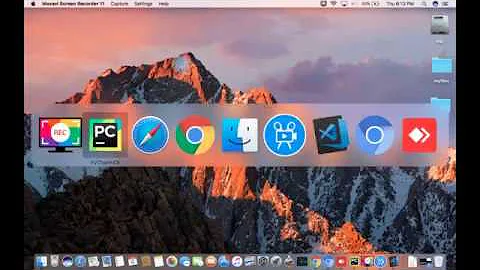how to iterate through dictionary in a dictionary in django template?
Solution 1
Lets say your data is -
data = {'a': [ [1, 2] ], 'b': [ [3, 4] ],'c':[ [5,6]] }
You can use the data.items() method to get the dictionary elements. Note, in django templates we do NOT put (). Also some users mentioned values[0] does not work, if that is the case then try values.items.
<table>
<tr>
<td>a</td>
<td>b</td>
<td>c</td>
</tr>
{% for key, values in data.items %}
<tr>
<td>{{key}}</td>
{% for v in values[0] %}
<td>{{v}}</td>
{% endfor %}
</tr>
{% endfor %}
</table>
Am pretty sure you can extend this logic to your specific dict.
To iterate over dict keys in a sorted order - First we sort in python then iterate & render in django template.
return render_to_response('some_page.html', {'data': sorted(data.items())})
In template file:
{% for key, value in data %}
<tr>
<td> Key: {{ key }} </td>
<td> Value: {{ value }} </td>
</tr>
{% endfor %}
Solution 2
This answer didn't work for me, but I found the answer myself. No one, however, has posted my question. I'm too lazy to ask it and then answer it, so will just put it here.
This is for the following query:
data = Leaderboard.objects.filter(id=custom_user.id).values(
'value1',
'value2',
'value3')
In template:
{% for dictionary in data %}
{% for key, value in dictionary.items %}
<p>{{ key }} : {{ value }}</p>
{% endfor %}
{% endfor %}
Solution 3
If you pass a variable data (dictionary type) as context to a template, then you code should be:
{% for key, value in data.items %}
<p>{{ key }} : {{ value }}</p>
{% endfor %}
Related videos on Youtube
darren
Updated on July 08, 2022Comments
-
darren almost 2 years
My dictionary looks like this(Dictionary within a dictionary):
{'0': { 'chosen_unit': <Unit: Kg>, 'cost': Decimal('10.0000'), 'unit__name_abbrev': u'G', 'supplier__supplier': u"Steve's Meat Locker", 'price': Decimal('5.00'), 'supplier__address': u'No\r\naddress here', 'chosen_unit_amount': u'2', 'city__name': u'Joburg, Central', 'supplier__phone_number': u'02299944444', 'supplier__website': None, 'supplier__price_list': u'', 'supplier__email': u'[email protected]', 'unit__name': u'Gram', 'name': u'Rump Bone', }}Now I'm just trying to display the information on my template but I'm struggling. My code for the template looks like:
{% if landing_dict.ingredients %} <hr> {% for ingredient in landing_dict.ingredients %} {{ ingredient }} {% endfor %} <a href="/">Print {{ landing_dict.recipe_name }}</a> {% else %} Please search for an ingredient below {% endif %}It just shows me '0' on my template?
I also tried:
{% for ingredient in landing_dict.ingredients %} {{ ingredient.cost }} {% endfor %}This doesn't even display a result.
I thought perhaps I need to iterate one level deeper so tried this:
{% if landing_dict.ingredients %} <hr> {% for ingredient in landing_dict.ingredients %} {% for field in ingredient %} {{ field }} {% endfor %} {% endfor %} <a href="/">Print {{ landing_dict.recipe_name }}</a> {% else %} Please search for an ingredient below {% endif %}But this doesn't display anything.
What am I doing wrong?
-
darren over 12 yearsthanks for your answer. I have recipe_name one level up and didn't show that level of the dictionary. Thank you for your answer! I couldn't use
values[0]instead I had tovalues.items -
 Srikar Appalaraju over 12 yearscool! glad to share what i knew. Code was typed free hand, so some mistakes are inevitable.
Srikar Appalaraju over 12 yearscool! glad to share what i knew. Code was typed free hand, so some mistakes are inevitable. -
Dave almost 9 yearsThanks for mentioning
.items. The documentationhttps://docs.djangoproject.com/en/1.4/topics/templates/gives an example that doesn't work, but no example that does work.{% for k,v in dict %}gives bizarre results - k is the first character of every key and v is blank, while{% for k in dict %}returns the full key but with no way to retrieve values (sincedict.ktreats k as a literal character). -
Dave almost 9 yearsUpvoted :-). For future readers, the tags and filters reference
https://docs.djangoproject.com/en/1.8/ref/templates/builtins/#fordocuments this, along with the forloop variables that can be helpful when formatting a list. -
 Srikar Appalaraju almost 8 years@Flimm dictionary is unsorted. if you want sorted order
Srikar Appalaraju almost 8 years@Flimm dictionary is unsorted. if you want sorted orderfor key in sorted(mydict.iterkeys()): print "%s: %s" % (key, mydict[key]) -
Kevin_TA almost 7 years
values.items+1




